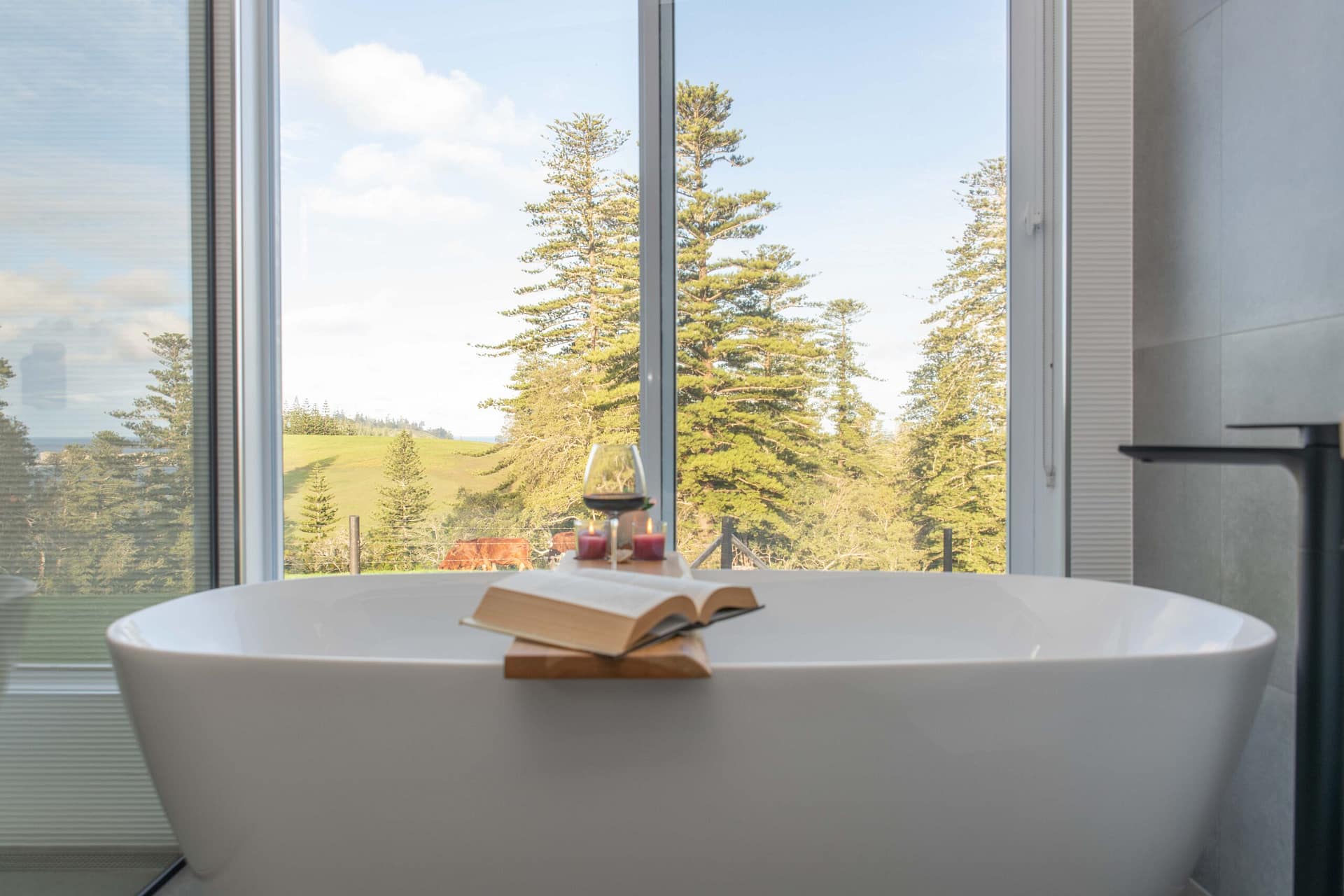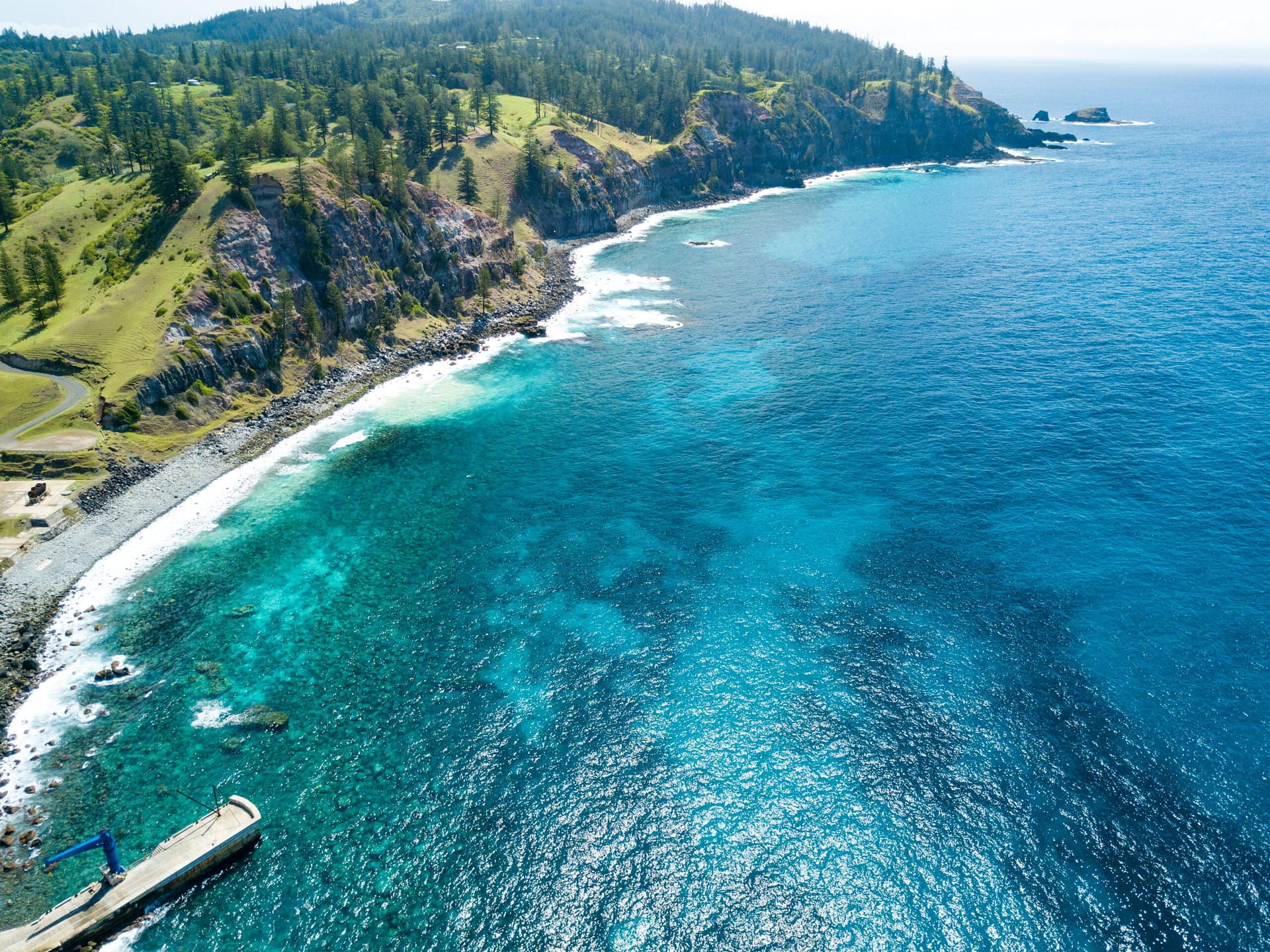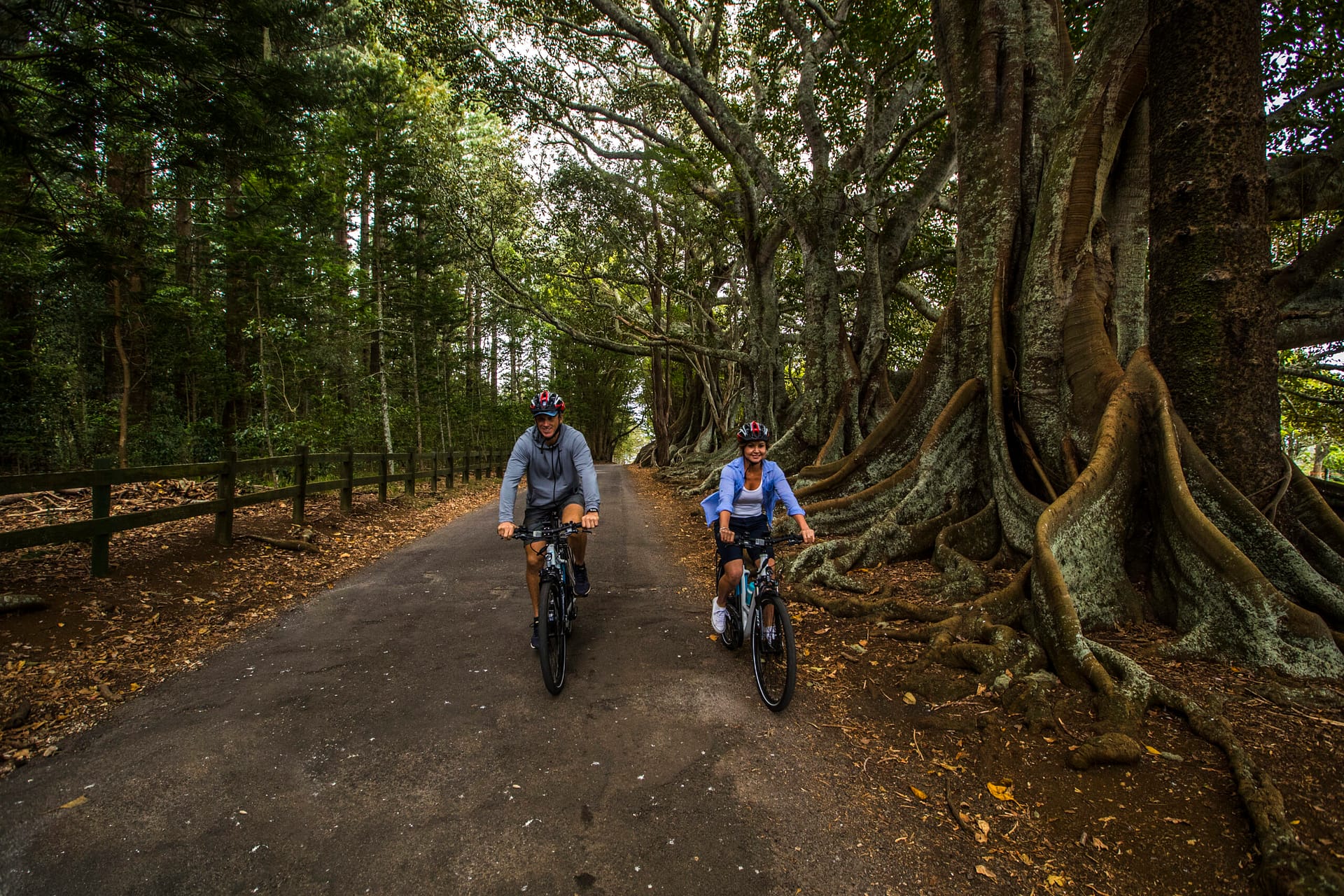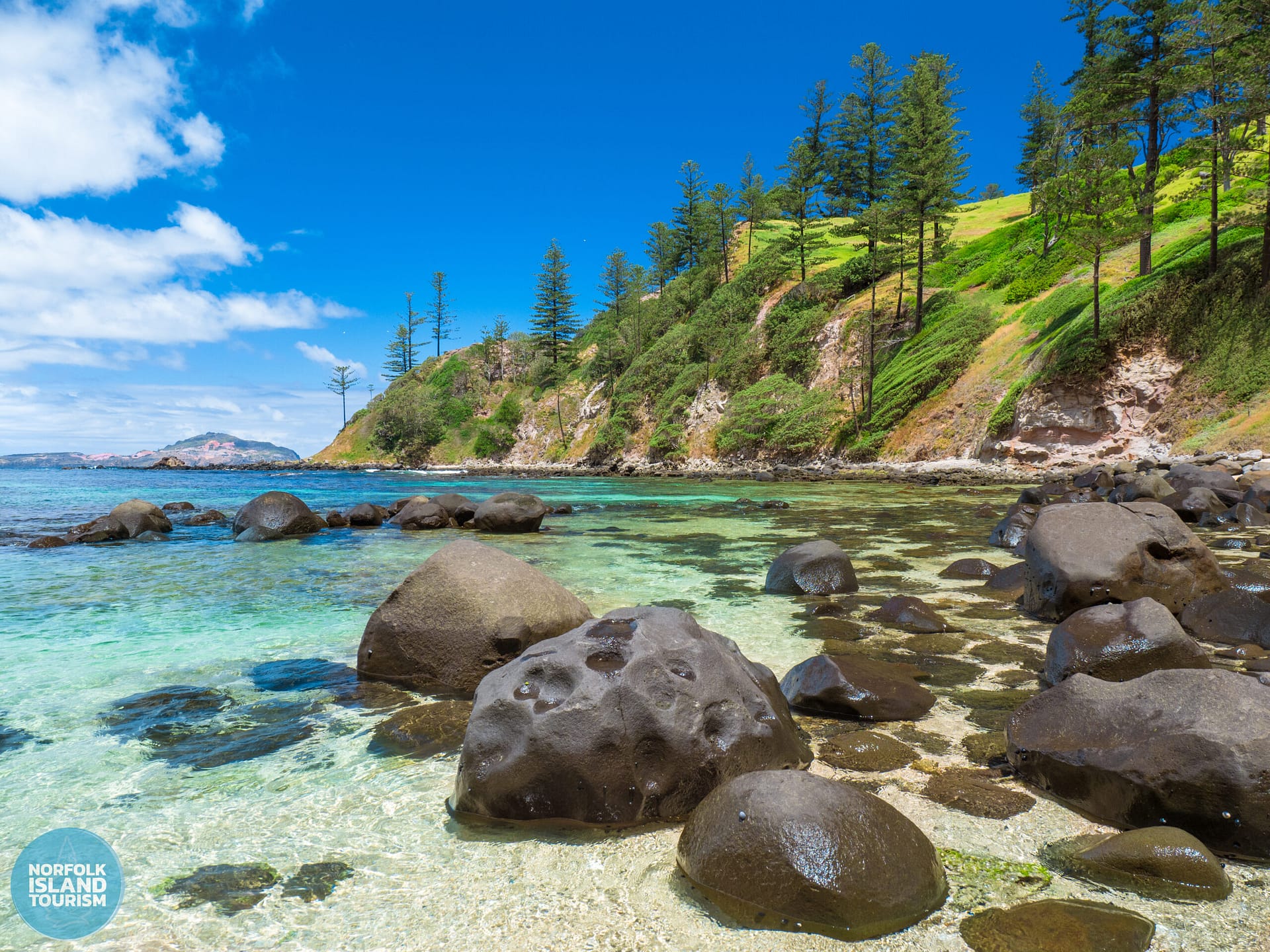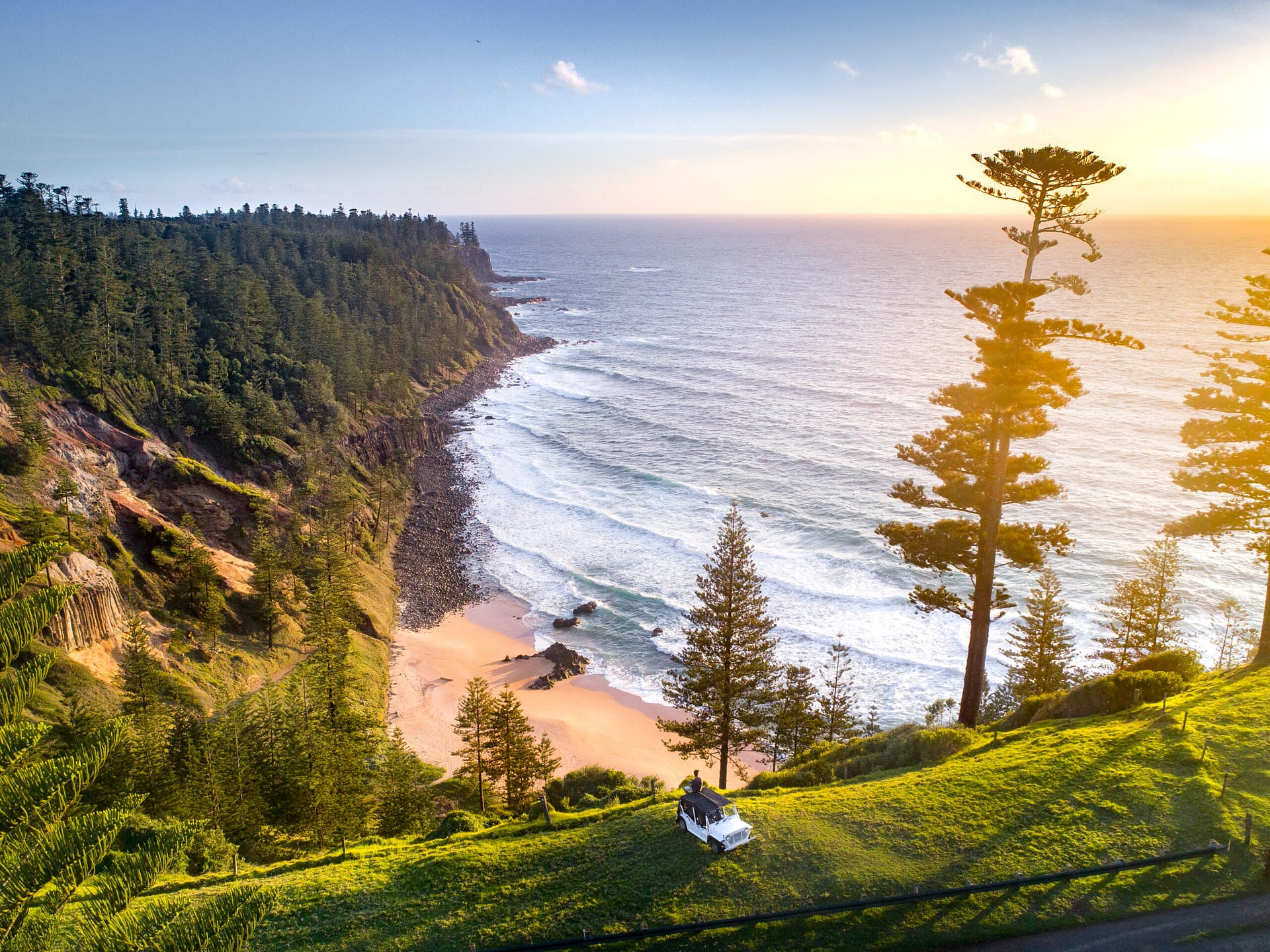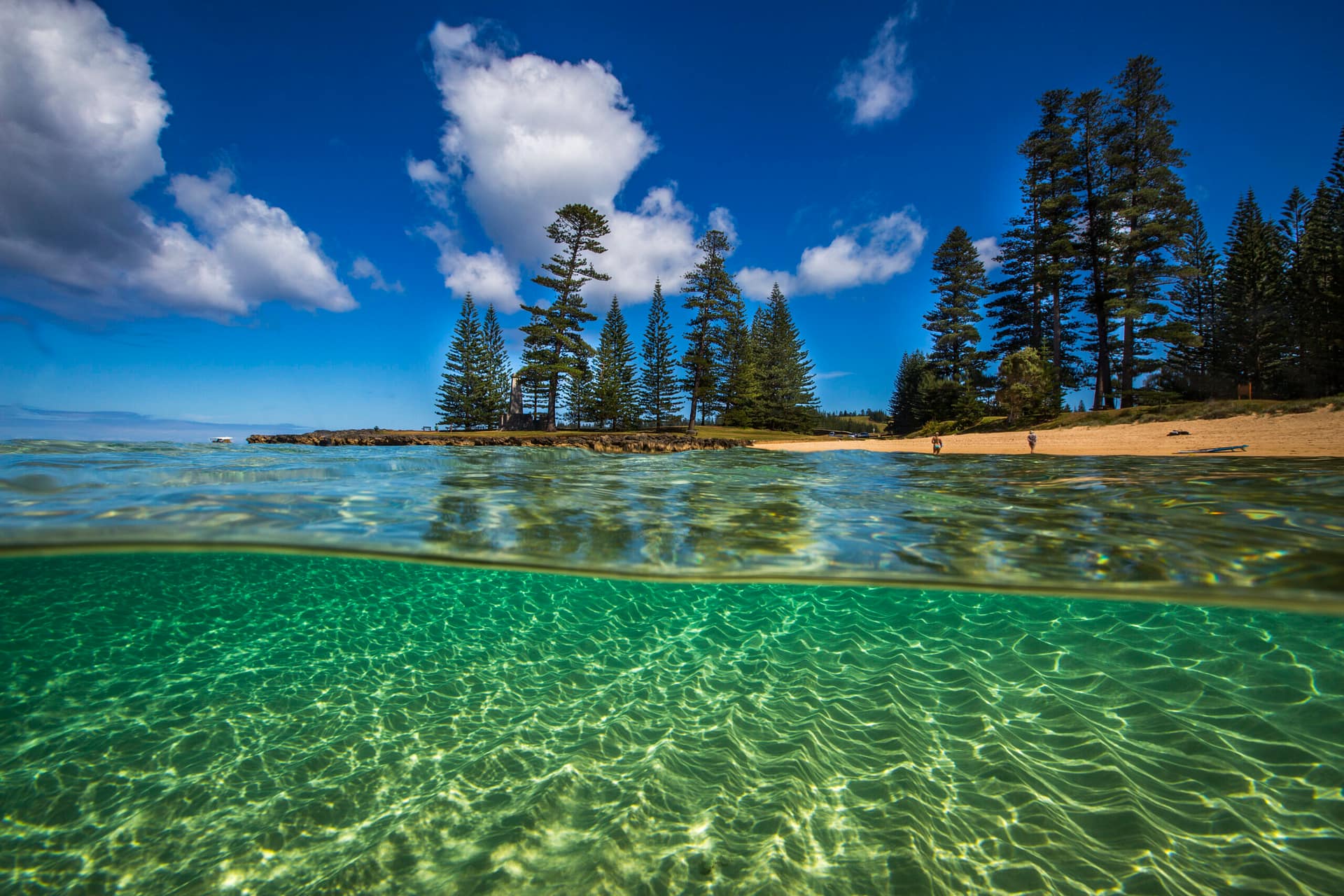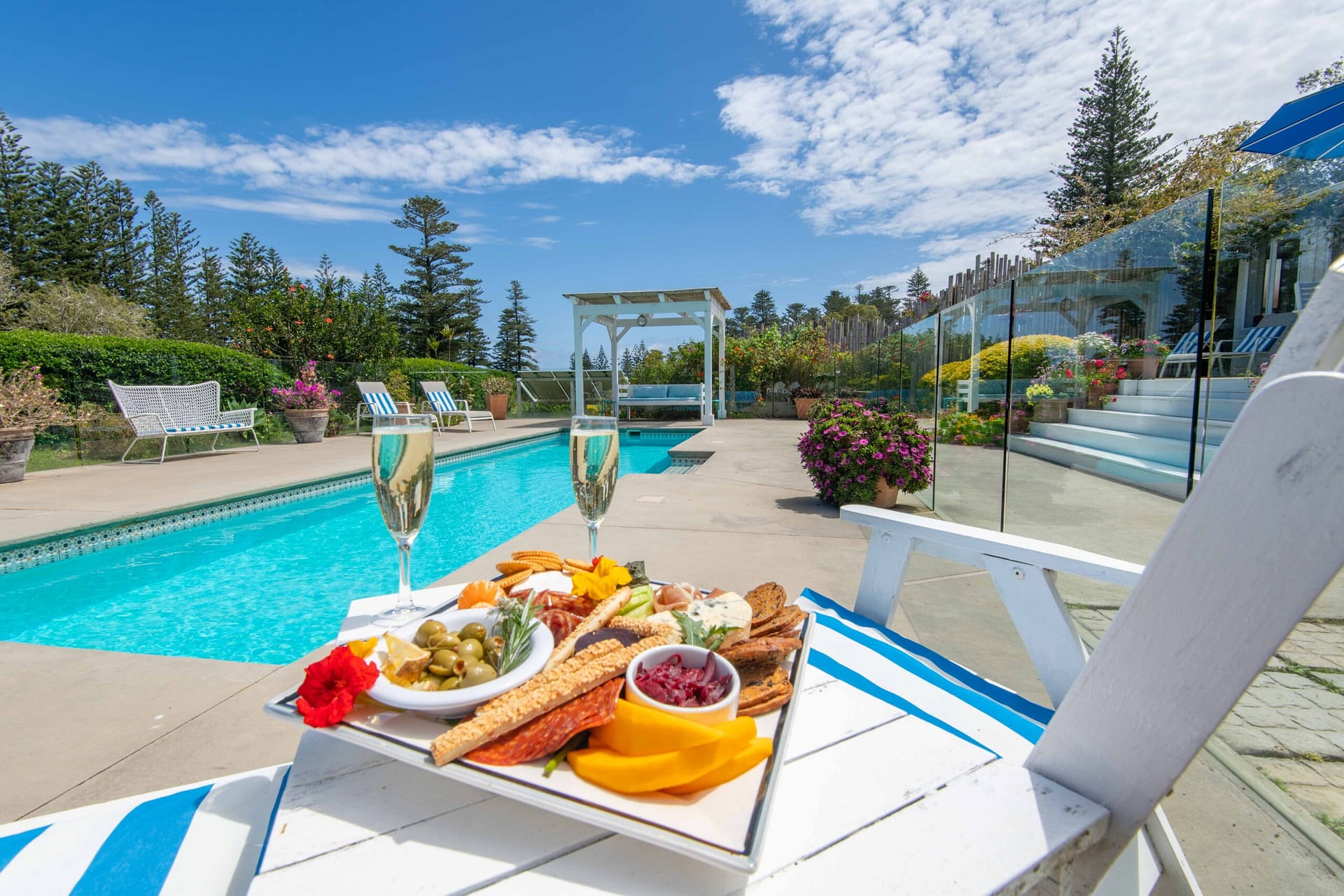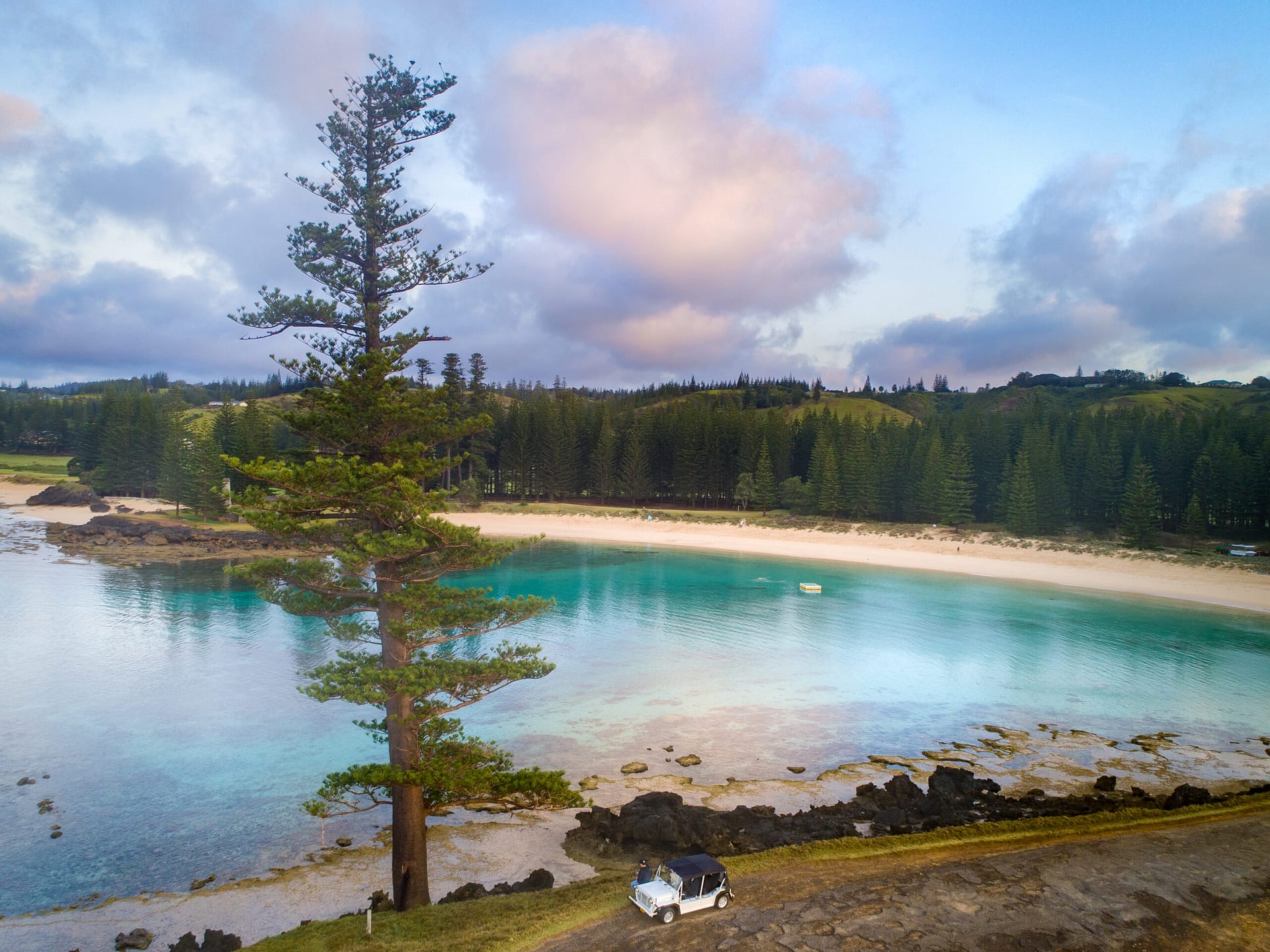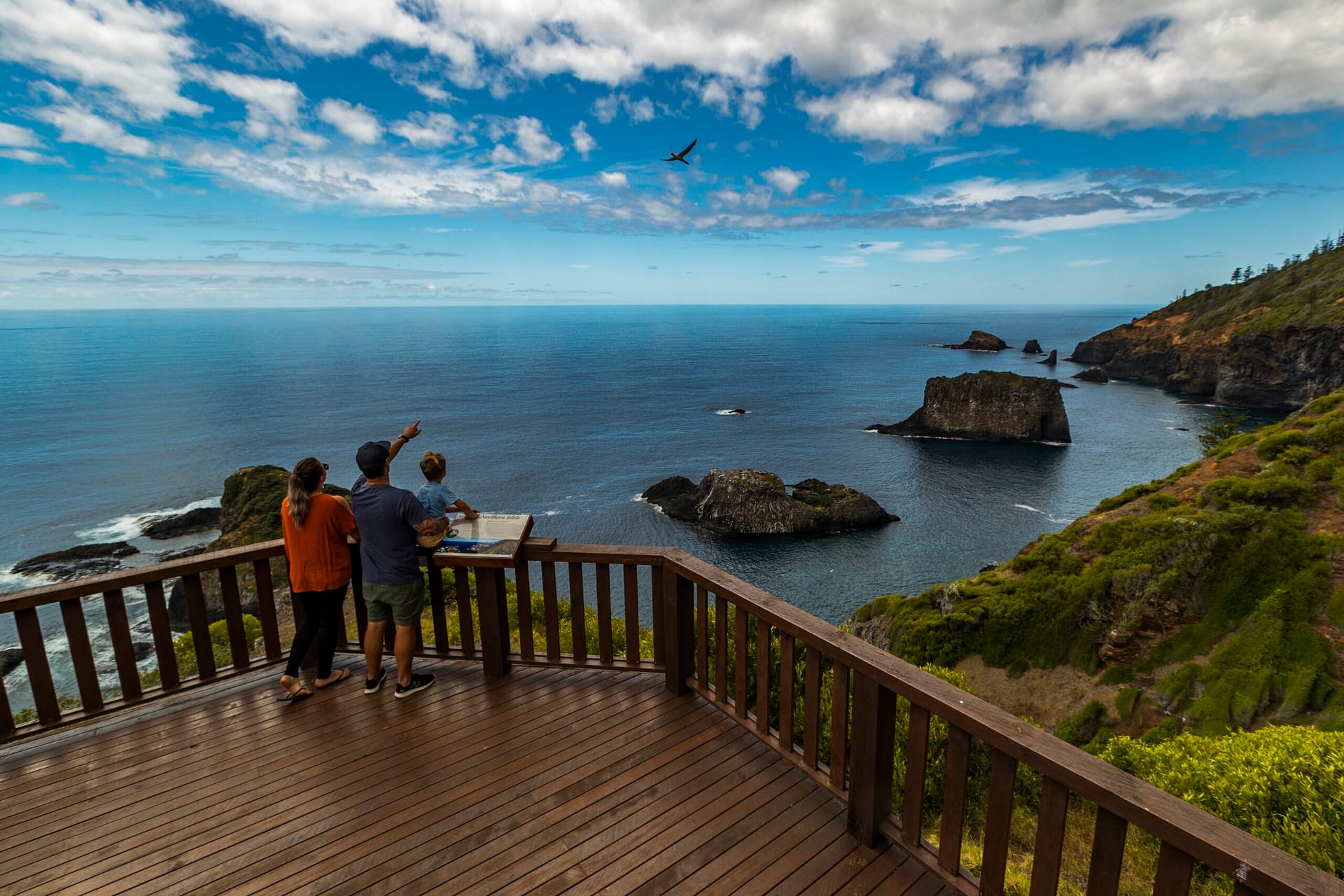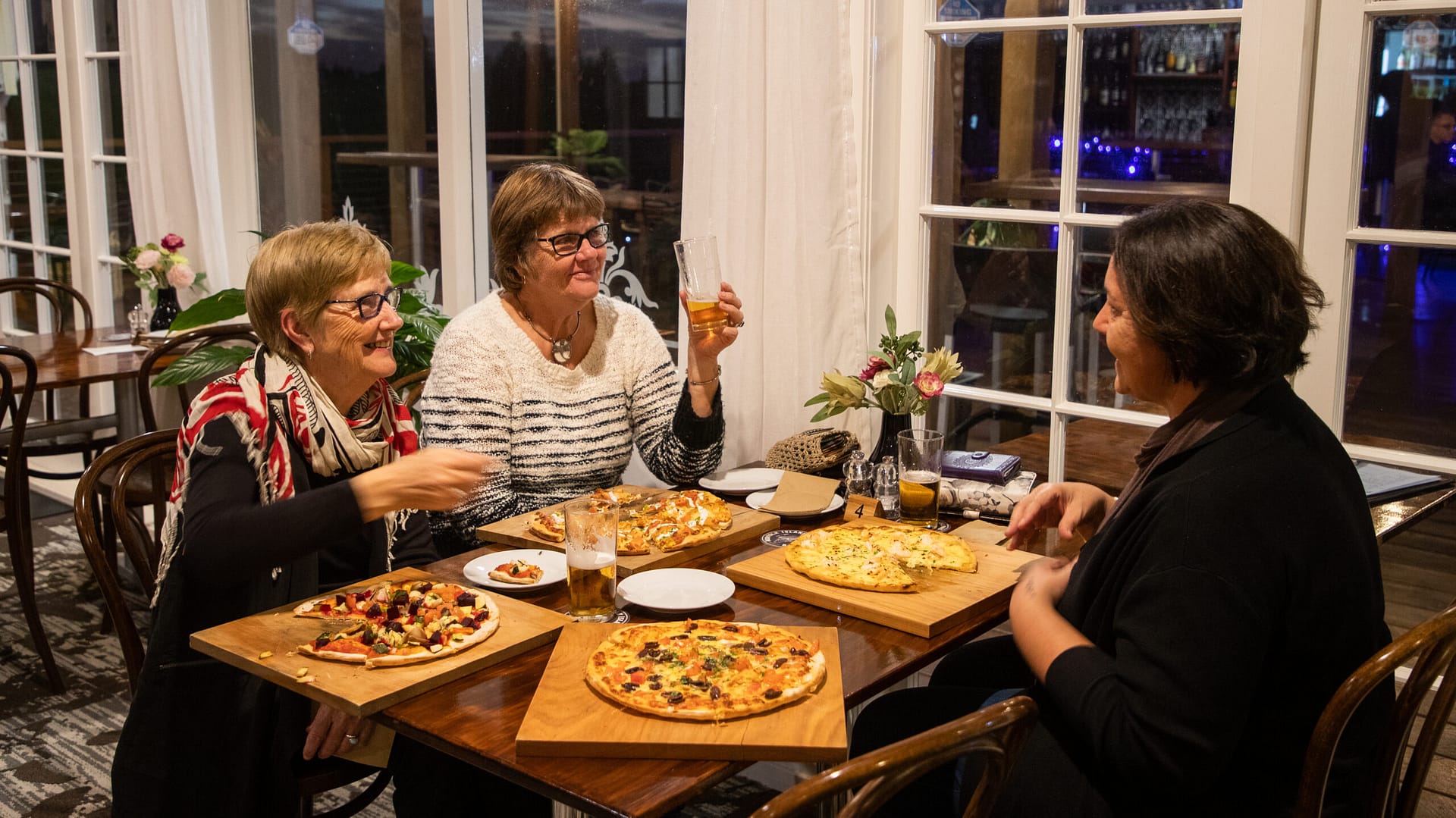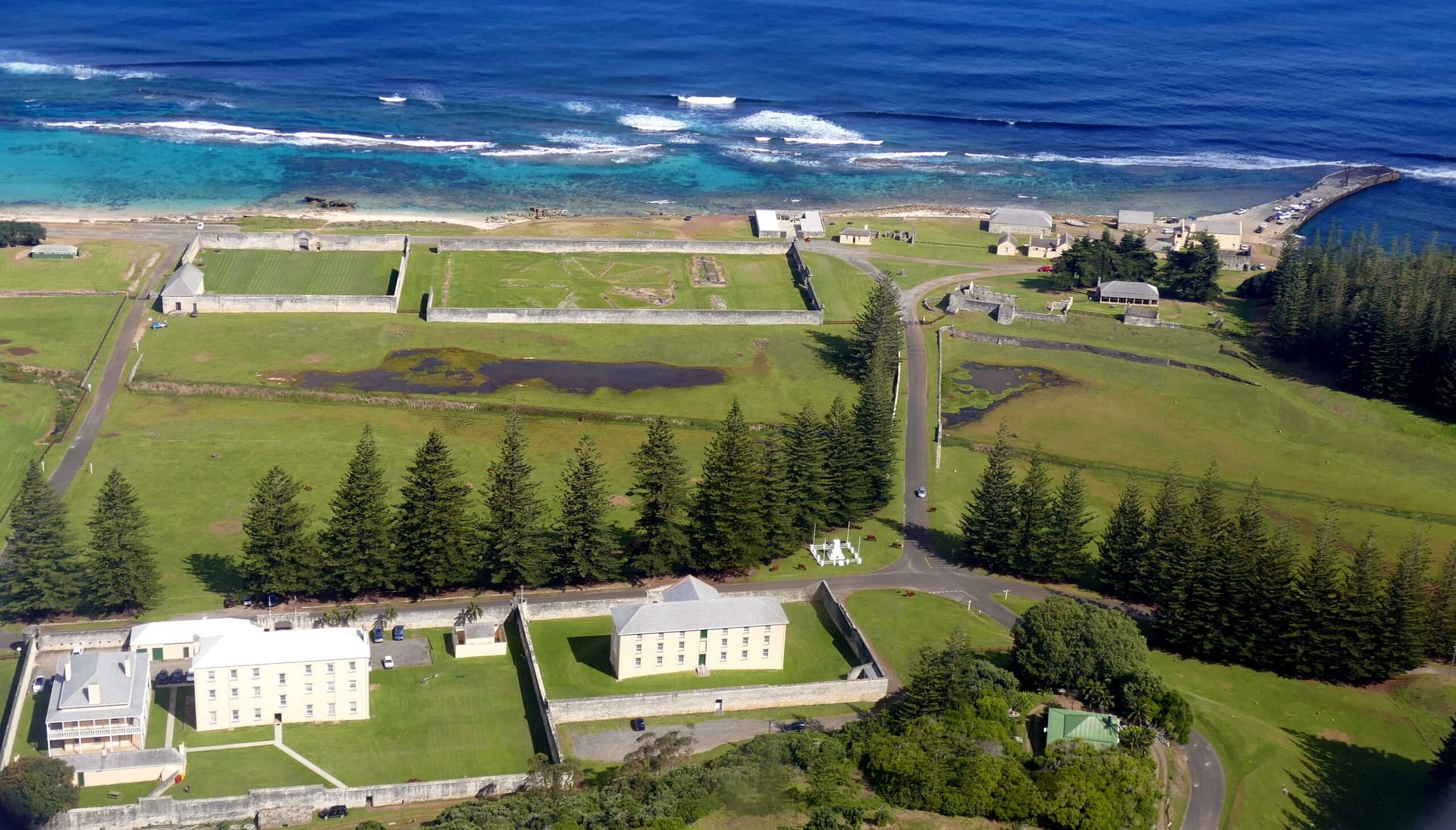Steeped in rich heritage and unique traditions, Norfolk Island offers an immersive journey through time, blending Polynesian, British, and convict history with a vibrant modern culture. Whether you’re a history enthusiast or a traveller seeking an authentic cultural experience, the island’s fascinating past and present are waiting to be explored. Here are the top tips for delving into the history and culture of this remarkable destination.
1. Visit the World Heritage Kingston and Arthur’s Vale Historic Area
One of the most significant Norfolk Island tourist attractions, the Kingston and Arthur’s Vale Historic Area (KAVHA) is a UNESCO World Heritage site offering deep insights into the island’s convict history. This well-preserved settlement showcases buildings, ruins, and artefacts from Norfolk Island’s penal colony era, dating back to the late 18th century.
To truly appreciate this site, consider joining one of the Norfolk Island Tours that specialise in historical storytelling. Guided walks and immersive experiences provide fascinating insights into the hardships and resilience of those who lived through the island’s convict past.
2. Explore the Norfolk Island Museum
For a more in-depth understanding of the island’s history, a visit to the Norfolk Island Museum is a must. Located within Kingston’s heritage buildings, the museum comprises several sites, including the Pier Store, Commissariat Store, and the No.10 Quality Row house. Each location provides a glimpse into different aspects of the island’s past, from the early Polynesian settlers to the Pitcairn Islanders who arrived in 1856.
Museum entry often includes guided tours, ensuring visitors gain a comprehensive understanding of the stories, struggles, and triumphs that shaped Norfolk Island.
3. Walk Through the Historic Cemetery
A visit to Norfolk Island Cemetery is both a historical and cultural experience. This beautifully preserved burial ground dates back to the first settlement in the late 1700s and is the final resting place of convicts, settlers, and notable island figures. The engraved headstones tell poignant tales of hardship, perseverance, and the enduring spirit of those who called Norfolk Island home.
Join a guided tour to hear the personal stories behind the inscriptions and understand the significant role the cemetery plays in preserving the island’s history.
4. Discover the Unique Pitcairn Islander Culture
The island’s vibrant culture is deeply intertwined with the descendants of the Bounty mutineers and their Tahitian companions, who arrived in 1856 from Pitcairn Island. Their traditions, language, and customs continue to shape the identity of Norfolk Island today.
To experience this unique heritage:
- Attend a cultural evening – Many locals offer immersive experiences where visitors can enjoy traditional food, music, and storytelling.
- Listen to the Norfolk language (Norf’k) – A blend of 18th-century English and Tahitian, this distinctive language is still spoken by many islanders.
- Visit the Bounty Folk Museum – A small but fascinating museum showcasing artefacts, photographs, and family histories related to the Pitcairn descendants.
5. Experience the Island’s Traditional Cuisine
Food is an essential part of any culture, and Norfolk Island is no exception. Many local dishes have roots in both the convict era and Pitcairn heritage, making dining a cultural experience in itself.
Be sure to try:
- Pilhi (green banana fritters) – A traditional dish with a delightful mix of sweet and savoury flavours.
- Mudda (banana dumplings with coconut sauce) – A local favourite passed down through generations.
- Fresh seafood and seasonal produce – Many Norfolk Island restaurants source their ingredients locally, offering an authentic taste of the island.
Some Norfolk Island accommodation providers also offer home-cooked meals showcasing these traditional dishes, allowing visitors to enjoy authentic flavours in a cosy setting.
6. Step into History at Government House
Government House, one of the most significant colonial buildings on the island, offers a glimpse into Norfolk Island’s administrative past. While it is still used for official functions, it opens to the public on select days for guided tours. These tours provide insight into the island’s governance, architecture, and historical significance.
Proceeds from these visits often go towards local charities, making it a meaningful way to contribute to the community while appreciating its heritage.
7. Attend the Annual Bounty Day Celebrations
One of the most significant cultural events on Norfolk Island is Bounty Day, celebrated on 8 June each year. This event marks the anniversary of the arrival of the Pitcairn Islanders in 1856 and is a time of pride, tradition, and remembrance.
Highlights of Bounty Day include:
- A reenactment of the historic landing, with participants dressed in period attire.
- A traditional morning procession followed by a community picnic with authentic island cuisine.
- A chance to witness cultural performances, including songs and dances unique to Norfolk Island’s heritage.
If you’re planning a visit, booking Norfolk Island accommodation in advance is recommended, as this event attracts many visitors and returning descendants.
8. Take Part in Traditional Handicrafts and Workshops
Artisan crafts and handmade goods are integral to Norfolk Island’s culture. Local artists and craftspeople continue to preserve traditional methods in weaving, woodworking, and pottery.
Consider joining a workshop or visiting local markets to see:
- Handwoven hats and baskets made from native palm leaves.
- Intricate wood carvings depicting island life.
- Locally made pottery and artwork inspired by Norfolk’s landscapes.
These authentic crafts make meaningful souvenirs while supporting the island’s creative community.
9. Explore the Ruins of the Penal Settlements
For those keen on delving further into the island’s penal history, exploring the ruins of the Second Penal Settlement is a must. The remains of former convict barracks, guardhouses, and officers’ quarters serve as stark reminders of Norfolk Island’s past as one of the harshest penal colonies in the British Empire.
Guided Norfolk Island Tours offer in-depth historical interpretations, bringing the stories of prisoners and administrators to life.
10. Stay in Historic Norfolk Island Accommodation
For a truly immersive experience, consider staying in one of the island’s heritage-listed accommodations. Some colonial-era homes and cottages have been carefully restored, offering a unique opportunity to live within history.
These properties often provide a blend of period charm and modern comfort, making them an ideal choice for travellers wanting to feel connected to Norfolk Island’s past while enjoying contemporary amenities.
Conclusion
Norfolk Island’s rich history and vibrant culture make it a fascinating destination for any traveller. From its UNESCO-listed convict sites to its living traditions and local customs, the island offers countless opportunities to connect with its past and present. By exploring Norfolk Island tourist attractions, joining Norfolk Island Tours, and choosing the right Norfolk Island accommodation, visitors can gain a deeper appreciation of this unique destination’s enduring heritage.
Whether you’re walking through historic ruins, listening to the island’s distinctive language, or sharing a meal with locals, every experience on Norfolk Island is a step back in time and a celebration of its cultural legacy.


